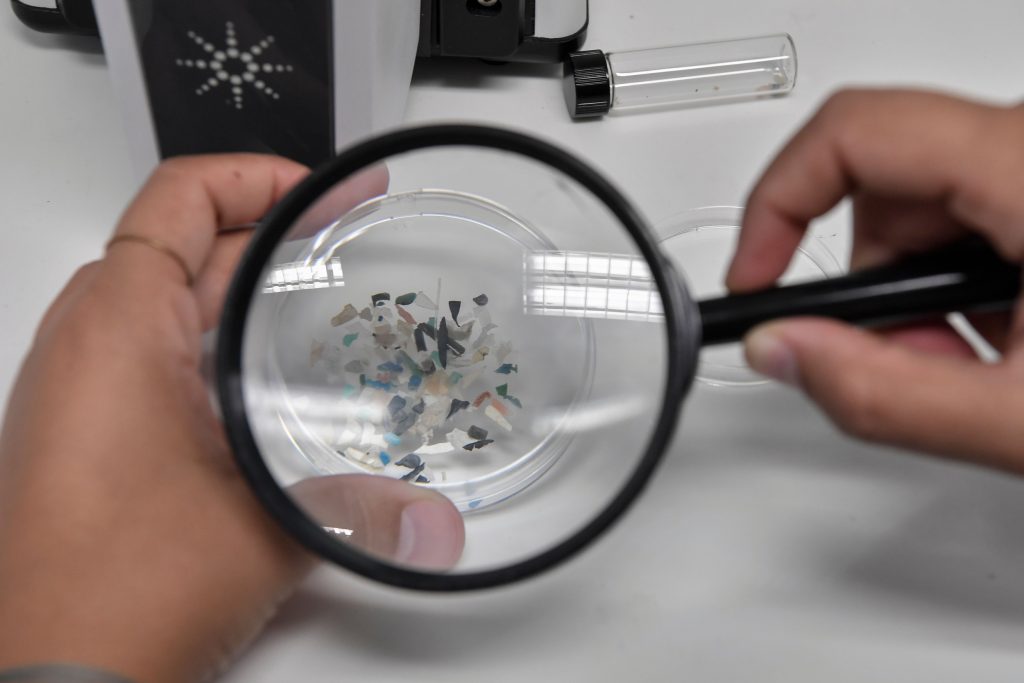A recent comprehensive review of approximately 3,000 studies has illuminated the pervasive and potentially harmful impact of microplastics on human health. These minuscule plastic particles, generally defined as being less than five millimeters in diameter, are increasingly recognized as a significant environmental pollutant contributing to air pollution and a range of respiratory issues. Beyond respiratory problems, the review links microplastic exposure to more severe health concerns, including certain cancers and both male and female infertility. The findings are particularly alarming given the ubiquitous nature of microplastics and the projected growth of plastic production. This review represents the first comprehensive assessment of microplastic health effects using methodologies endorsed by the National Academy of Sciences, signifying the growing scientific consensus regarding the potential dangers of microplastic pollution.
Microplastics, often intentionally produced at their small size for applications like cosmetics, are derived from larger plastic materials that fragment over time. The scale of plastic production is staggering, with global output in 2019 reaching 460 million metric tons, a figure projected to quadruple by 2060. The vast majority of this plastic is single-use, manufactured from fossil fuels, further exacerbating the environmental burden. A primary contributor to microplastic pollution is vehicular traffic. The friction between tires and road surfaces generates a significant amount of microplastic particles, releasing them into the atmosphere. This airborne microplastic pollution directly contributes to respiratory issues, acting similarly to other forms of particulate matter air pollution. The study has even linked chronic pulmonary inflammation triggered by microplastics to an elevated risk of lung cancer.
The petrochemical industry, the source of the raw materials for plastic production, is poised to significantly increase plastic manufacturing. This concerning trend is driven by the anticipated decline in oil and gas sales, forcing the industry to seek alternative revenue streams. However, increased plastic production intensifies the climate crisis by adding to greenhouse gas emissions throughout the plastic life cycle. Moreover, the study underscores the health risks associated with plasticizers and other plastic-related compounds. Phthalates, chemicals used to soften plastics, have been linked to preterm birth and adverse male reproductive effects. Bisphenol A (BPA), another common additive, carries potential risks for immunotoxicity, metabolic disorders, neurotoxicity, developmental toxicity, and both male and female reproductive toxicity, as well as carcinogenicity.
Microplastics pose a multifaceted threat to human health. Their small size allows them to infiltrate the body through various pathways, including ingestion, inhalation, and skin contact. Once inside the body, microplastics can accumulate, triggering immunological responses or localized particle toxicity. They can even migrate from the digestive system to other organs, including the kidney, liver, and brain. This pervasive distribution throughout the body raises concerns about potential long-term health consequences that are still being investigated. The accumulating evidence necessitates a proactive approach to mitigate microplastic exposure and address the growing health risks associated with these ubiquitous particles.
Leading experts in the field are calling for urgent action to address the growing health concerns related to microplastic exposure. Researchers involved in the study emphasize the urgent need for regulatory agencies and policymakers to acknowledge the scientific evidence linking microplastics to adverse health outcomes, including colon and lung cancer. They advocate for immediate action to prevent further exposure to these potentially harmful particles. The research underscores the seriousness of the issue and the need for a multi-pronged approach involving research, policy changes, and public awareness campaigns.
Further research is crucial to fully understand the extent of microplastic-related health impacts. Future studies should explore additional health outcomes potentially affected by microplastic exposure and identify effective strategies to reduce exposure at both individual and societal levels. This research should inform policy decisions aimed at minimizing microplastic production and release into the environment. Governments at all levels are urged to take action to protect public health from this emerging threat. This call to action highlights the need for a concerted effort to address the complex challenge of microplastic pollution and safeguard human health. Ultimately, a comprehensive and collaborative approach involving scientific research, policy development, and public engagement is essential to mitigate the risks posed by microplastics.










